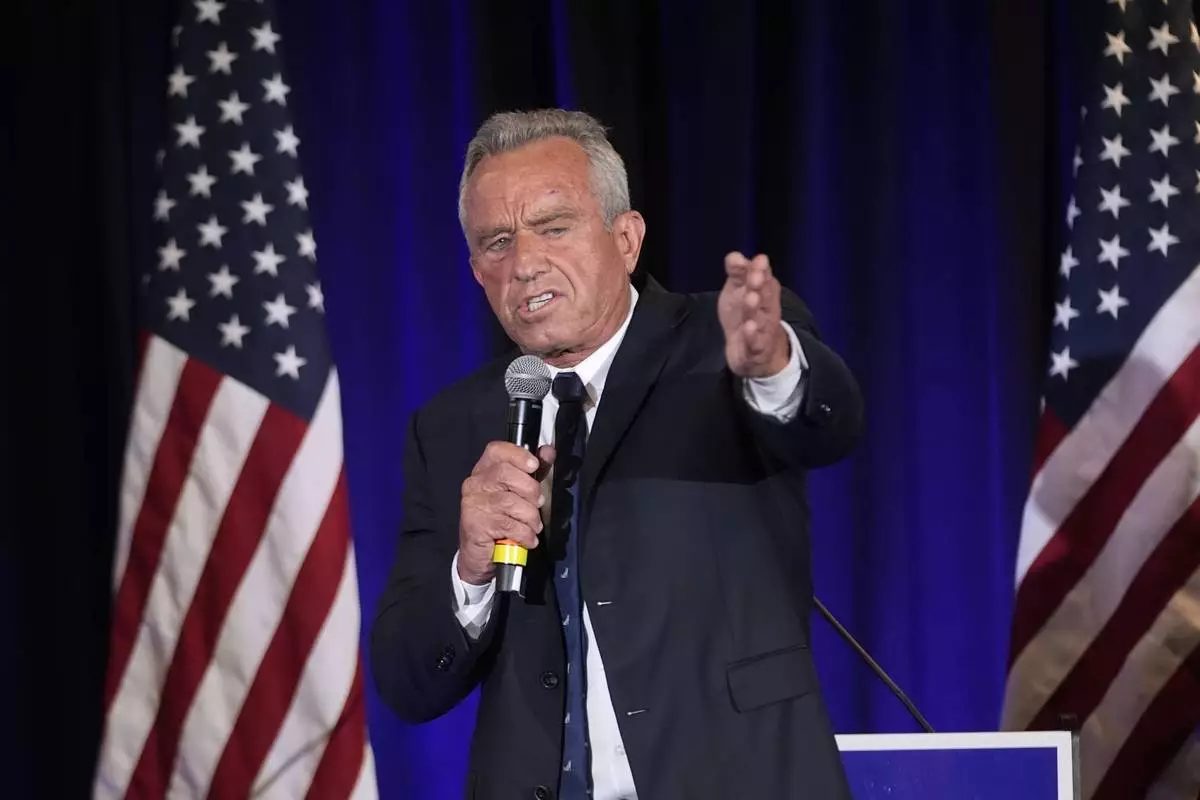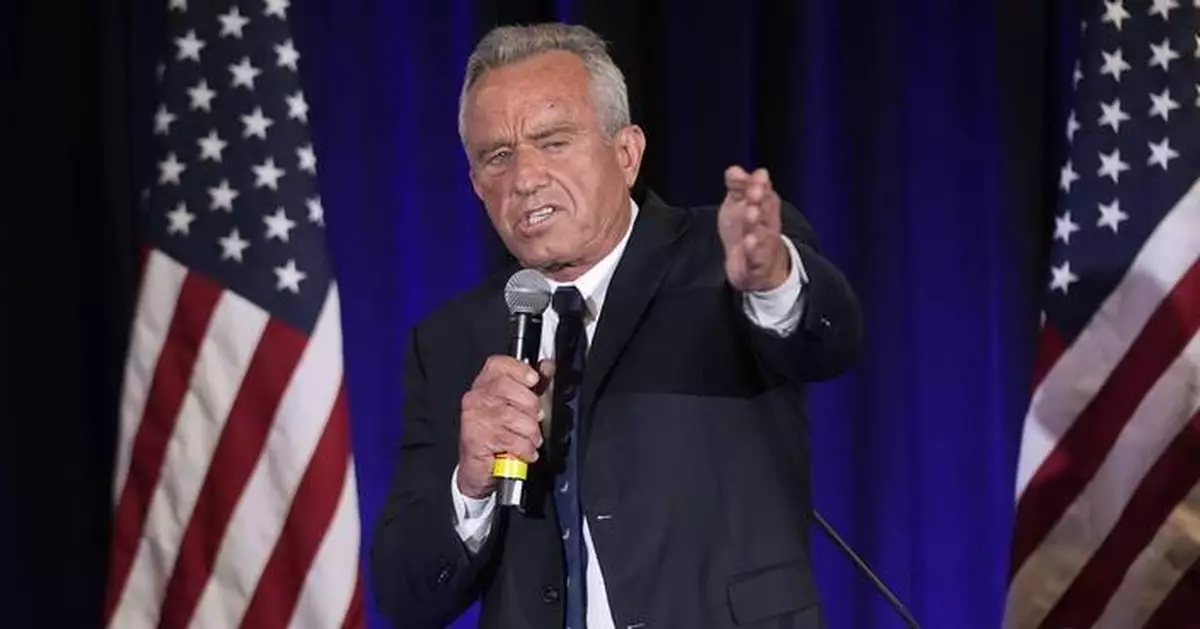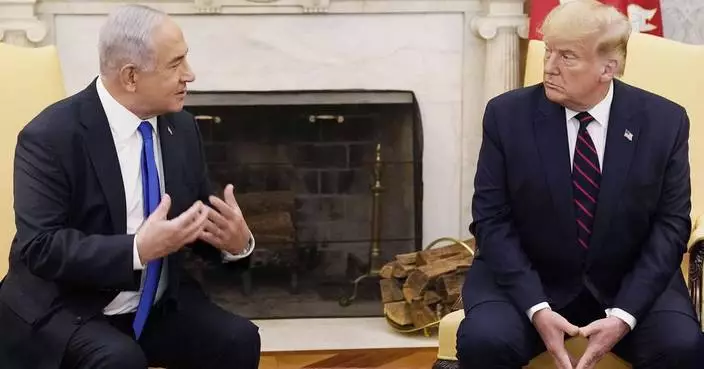PHOENIX (AP) — Robert F. Kennedy Jr. has long argued that the biggest hurdle of his presidential campaign is the perception that independent candidates can't win. He has looked to the debates as a singular opportunity to stand alongside Joe Biden and Donald Trump in front of a massive audience.
But to make the first debate stage, he’ll have to secure a place on the ballot in at least a dozen more states and improve his showing in national polls in one month.
With a famous name and a loyal base, Kennedy has the potential to do better than any third-party presidential candidate since Ross Perot in the 1990s. Both the Biden and Trump campaigns, who fear he could play spoiler, bypassed the nonpartisan debate commission and agreed to a schedule that leaves Kennedy very little time to qualify for the first debate.
Publicly, Kennedy is expressing confidence that he will make the stage.
“I look forward to holding Presidents Biden and Trump accountable for their records in Atlanta on June 27 to give Americans the debate they deserve," he posted on the X platform.
CNN has said candidates will be invited if they’ve secured a place on the ballot in states with at least 270 votes in the Electoral College, the minimum needed to win the presidency, and have hit 15% in four reliable polls published since March 13. The criteria mirror those used by the Commission on Presidential Debates, the nonpartisan group that has organized debates since 1988, except the commission's first debate would have been in September, giving Kennedy more time.
Kennedy doesn’t appear to have met the polling criteria yet, although he has reached 15% or higher in at least two polls meeting CNN's standards.
The ballot access hurdle is even tougher.
State officials have confirmed Kennedy's place on the ballot in Delaware, Oklahoma and Utah, which have just 16 electoral votes between them. In California, Hawaii and Michigan, minor parties have selected Kennedy as their nominee, in effect offering up existing ballot lines, though the states have not formally affirmed Kennedy's position. Adding them would bring Kennedy's total to 89 electoral votes, though it's not clear that his position in those states would meet CNN's criteria.
Kennedy's campaign says he has collected enough signatures in Idaho, Iowa, Nebraska, Nevada, New Hampshire, New Jersey, North Carolina, Ohio and Texas, states with 112 electoral votes in total. But he has either not submitted the signatures or they have not yet been affirmed by state election officials.
Those states still only add up to 201 electoral votes.
Independent candidates like Kennedy face a labyrinth of laws that vary wildly from state to state but generally require hundreds or thousands of signatures and compliance with strict deadlines.
The patchwork of laws is littered with pitfalls. And the Democratic National Committee has pledged to scrutinize Kennedy’s submissions for mistakes that could keep him off the ballot or at least tie up his campaign’s time and money.
Kennedy, in turn, has resorted to secrecy and creative tactics in a sort of cat-and-mouse game to get on the ballot before his critics can thwart him. In California, Delaware and Michigan, Kennedy allied with little-known existing parties and received their nominations. In Hawaii, he formed his own political party to nominate him, and he’s pursued a similar strategy in Mississippi and North Carolina.
Elsewhere, he’s waiting to turn in signatures until the deadline to limit the time for critics to pore over them in search of errors. Getting on the debate stage next month would almost certainly require him to change his strategy and submit the petitions he’s sitting on as soon as possible.
Signatures are due in New York by May 28, which would get Kennedy 28 votes closer if they're affirmed in time. He could then try to make an all-out push in a bunch of states with relatively easy requirements — many require 5,000 or fewer signatures, but they generally don't bring many electoral votes — or focus on bigger states, such as Illinois with 19 electoral votes or Florida with 30.
Further complicating matters, some states aren't yet accepting filings from potential independent candidates and won't before the first debate.
Kennedy’s vice presidential nominee, Nicole Shanahan, who is divorced from Google co-founder Sergei Brin, committed $8 million from her personal fortune for ballot access, the campaign announced Thursday, declaring their $15 million effort “fully funded.”
Associated Press writer Amelia Thomson DeVeaux in Washington contributed to this report.

Independent presidential candidate Robert F. Kennedy Jr. speaks to supporters during a campaign stop, Monday, May 13, 2024, in Austin, Texas. (AP Photo/Eric Gay)










